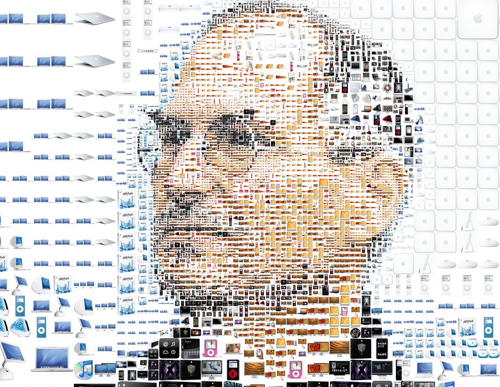 As I reflect on Steve Job's resignation this week, I am grateful for how his achievements inspire my own thinking. Here are some updated thoughts on a post I wrote from 18-months ago.
As I reflect on Steve Job's resignation this week, I am grateful for how his achievements inspire my own thinking. Here are some updated thoughts on a post I wrote from 18-months ago. Whatever your opinion of the Apple products, they continue to capture the consumer imagination and bring innovation to life. With the historic moment of the iPad's original release, now about 18-months old, I want to revisit some of the actual sound bites of the marketing blitz. Quotes from the release include:
- When something exceeds our ability to understand how it works, it sort of becomes magical
- It's hard to see how something so simple can be so capable
- It's going to change the way we do the things we do, every day
- I don't have to change myself to fit it; it fits me
- We decided, "Let's redesign it all...let's redesign and reimagine and rebuild from the ground up..."
- You get an order of magnitude more powerful
- There's automatic orientation
- Everything gets out of the way so that you can focus on the content you care about
- We want to put it in the hands as many people as possible right from the start
- This is a new category, but millions and millions of people are going to be instantly familiar with it
What if the ministry of our local churches could reflect amazing claims like this? Go ahead and reread the list, but this time thinking about your church.
Is there even room for a comparison of Apple's advancements to gospel-centered ministry? I believe so and I think the magic of this tech revolutionary has something to teach church leaders.
Listen to the linchpin strategy of Apple's success:
"It's built by our hardware team in concert with our software team and what that gives you is a level of performance that you can't get any other way. Apple is the one place that you can really do this. We build battery technology, we build chip technology and we build software and we bring all those things together in way that no one else can do it."
The singular application of Steve Job's success to church leaders is that design from the ground up is so fully integrated, that quality and innovation are unsurpassed. In church speak, we would dream that ministry content, ministry environments, ministry people and processes are so integrated that life change and accessibility to the gospel are unsurpassed.
But often doesn't happen. Why not? We simply prefer NOT to do the work of designing, thinking and building this way. We like the message of Simple Church, or Church Unique, but get stuck relying on existing models. We get weary of talking with lay leadership about real changes in ministry strategy. We get satisfied with the good results of duplicating a program rather than the great results of incarnating our own. We get so busy on the ministry treadmill that we let every staff person makes decisions based on their own "operating system."
What would happen if Steve Jobs decided to make disciples?
How would he design the church? What adaptations would he make to your ministry design? What would he stop altogether? How would he redesign from the ground-up?
